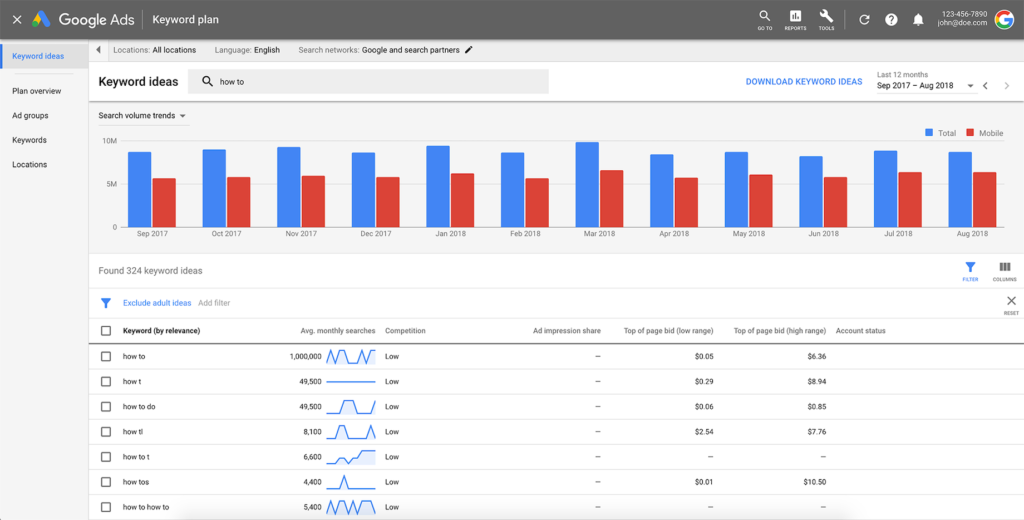Up Your Pay-Per-Click Game with These Tools
Using paid ads and sponsored posts can be an extremely useful tool to drive traffic to your website. However, pay-per-click strategies can be especially costly if they are not executed in a logical and effective manner. The following are some great tools and techniques that can be used as a guide to make more powerful and cost-efficient decisions when it comes to PPC strategies.
Google Keyword Planner
The Google Keyword Planner is a particularly useful tool for developing and grouping important keywords for ad campaigns. The benefit of this planner is in how it shows the monthly/total search volume and average bid cost of certain keywords for an industry or campaign. Furthermore, this planner gives you a rough estimate of how much competitors are spending for certain keywords. Hypothetically, this allows you to make more cost-effective decisions as a marketer, because you can budget accordingly and create ads based around the keywords that are most frequently searched. The planner also identifies areas that may be underserved digitally and reveals specific information on volume, competition, or keywords. These tools could allow you to write a location strategy accordingly.

Competitor Keyword Research
Doing research on the keywords that competitors use is important for ensuring your campaign is as fully optimized as possible. The two main tools we prefer that can be used for competitor keyword analysis are SEMrush and SpyFu.
When using SpyFu, you can look at the major competitors in your market and discover which keywords they are bidding on. SpyFu also presents you with market research on what ads competitors are running for a keyword to get the highest conversion rates and the most traffic to their site. SpyFu has current keyword strategies, as well as historical data of competitors which allows you to see the progression of their strategies and discern how keywords were priced over time. This can be extremely helpful, as it gives you access to important historical data from which you can base your decisions.
Similar to SpyFu, SEMrush examines which keywords competitors are using in their ads. However, the main difference with SEMrush is how users can view specific domains or competitors and dig deep into other websites. If there is a specific company that you are trying to research, this tool allows you to do so. Using both of these tools helps cover all your bases when conducting paid ad research.
The Importance of Call Tracking in Paid Campaigns
Call tracking is essential and should be implemented with any paid ad campaign. Google gives more detailed data on paid clicks versus organic clicks, and call tracking platforms helps capture that information. To this end, CallRail uses dynamic number insertion to track how users are getting to a website. Depending on where a user is directed from a different contact number will appear on the top of the website. For example, if a user clicks on a Facebook ad as opposed to a referral link on an external site, CallRail will track where the user originated from by presenting each user with a different number when they click through. This gives marketers a great advantage, as they can fine-tune paid ad campaigns to ensure they are converting at the highest level.
As the PPC game continually evolves, it is important to stay up to date. By using any one of these simple and helpful tools, you could take an active role in making your PPC strategy more cost-effective and directed toward users that you are looking to bring to your client’s site.






